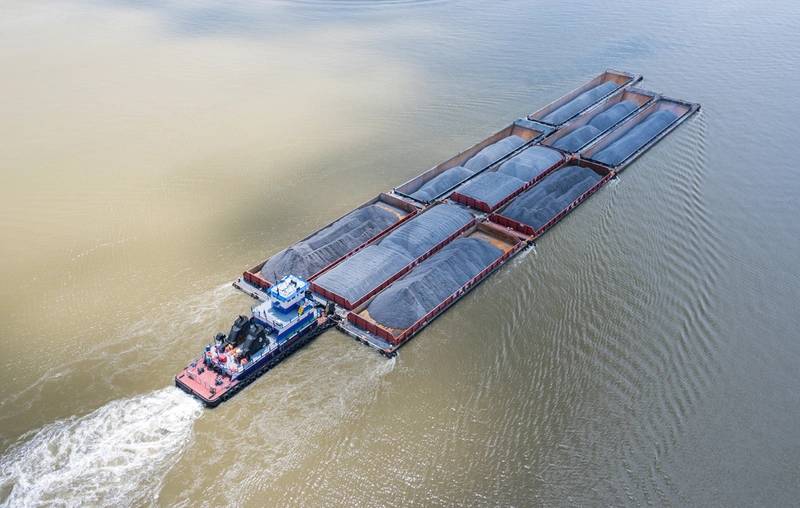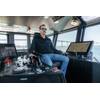Study Examines Economic Impact of US Waterways
A study unveiled today documents the contribution of the American tugboat, towboat and barge industry to the U.S. economy.
The study, developed through a cooperative agreement between the American Waterways Operators (AWO) and the Maritime Administration (MARAD) and conducted by PricewaterhouseCoopers, explores the industry's economic contributions to employment, gross domestic product and taxes at the national and state levels; details the types and quantities of vital commodities transported on American waterways; and compares waterborne transport to other modes of freight transport in terms of efficiency, environmental impact and public safety.

The study found that the U.S. tugboat, towboat and barge industry supports more than 300,000 jobs nationwide, including 50,000 in the industry itself, 38,000 of which are on board vessels, and has a total annual impact on GDP of $33.8 billion.
The industry annually moves more than 760 million tons of cargo that fuels the American economy, including critical commodities like petroleum, agricultural products, chemicals, coal and manufactured goods. One inland dry cargo barge can haul 1,750 tons of dry cargo, the equivalent of 16 bulk rail cars or 70 tractor trailers, with greater fuel efficiency and fewer greenhouse gas emissions.
AWO President & CEO, Tom Allegretti, commented, "AWO could not be prouder to unveil this PricewaterhouseCoopers study thoroughly quantifying what the dedicated men and women who make up the tugboat, towboat and barge industry have long known, from decades of first-hand experience – the extent to which maritime freight transport serves as a critical pillar of the American economy. We are especially pleased to have partnered with MARAD to produce this invaluable resource, and we look forward to using it to educate policymakers, the media, and the public about the role this industry plays in fueling our nation's prosperity."
MARAD Executive Director, Joel Szabat, commented, "The maritime industry enables the movement of goods and cargo quickly, efficiently and at low cost between producers and markets along our nation's waterways. Waterborne commerce opened up our nation to trade and helped transform a fledgling democracy into the economic superpower it is today. Energy efficient water transport continues to play a pivotal part in our nation's transportation system and helps make America's economy more competitive."
Related News

